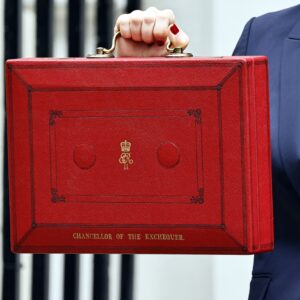John Lovell is interviewed by Lexis Nexis: 4 October 2017
First published by Lexis Nexis
John Lovell, Managing Director at capital allowances specialists Lovell Consulting, outlines the recent review by the Office of Tax Simplification (OTS) regarding replacing capital allowances with accounts depreciation. He explains that while there are arguments for and against, it’s unclear whether any definitive action will be taken at this stage – indeed, a period of consolidation in tax may be more actively beneficial.
- What is the background to this latest review by the OTS?
The Office of Tax Simplification (OTS) is an independent office of HM Treasury that provides advice to the government regarding the simplification of the UK tax system. During the OTS’s recent corporation tax computation review, capital allowances were flagged as an area of complexity in almost every meeting that the OTS had with businesses and advisers.
The reasons for the latest review by the Office of Tax Simplification (OTS) are therefore two-fold: the perceived (and ongoing) need for simplification, and lobbying from some business groups. Capital allowances are complex, particularly for second hand properties, and there is currently a lot of property expenditure which attracts zero tax depreciation. Accounts-based depreciation would extend the tax relief available and could potentially make it a simpler process.
OTS is therefore consulting with interested parties on the impact of switching to accounts depreciation. The official review process is now beginning; OTS published a paper on October 3rd 2017 calling for evidence from businesses, representative groups, and professional advisers as they move forwards. They are seeking meetings or written responses by 30 November 2017.
- What are the arguments for and against replacing capital allowances with accounts depreciation?
The argument for accounts depreciation is predominantly a desire for simplicity. Current legislation is complex, particularly for buying property. The compliance time and costs involved are therefore quite significant and handling them has become a niche role in the process, which is normally carried out by specialist capital allowances surveyors.
Furthermore, there are many buildings that obtain little or no tax relief, which is a peculiarity of the UK tax system. Shell buildings, for example, such as distribution buildings, shopping centres, new build hotel structures, and many second hand acquired assets attract zero tax relief because they contain virtually no plant or machinery, which would qualify them for Plant & Machinery Allowances (PMAs). Rather, it is almost entirely the internal fit out of such buildings that attracts tax relief through capital allowances.
The principal argument against replacing capital allowances with accounts depreciation centres around the tax cost of extending tax depreciation to expenditure, which does not currently attract any tax depreciation. Indeed, if accounts depreciation was the way forwards, then why did the Treasury scrap Industrial Buildings Allowances (IBAs) and Hotels Allowances in 2008? After all, they were relatively simple to calculate and a form of accounts depreciation. The answer is that they were scrapped to substantially pay for the reductions in corporation tax rates from 2008 onwards.
Changing the system would also involve a very substantial transition cost and further complexity in the shorter term. Commercial accounts depreciation would also introduce tax relief to all construction and property expenditure, except for land costs. Nevertheless, it’s likely that the proposal to change the system will be killed off on the grounds of tax cost. In fact, such a switch has already been considered in the past; in the Government’s consultation paper, the 2003 ‘Reform of Corporation Tax’. In fact, it will cost even more to implement now than it did back in 2003 because build costs and property values have substantially increased since 2003. The tax cost of extending tax depreciation in the current climate, especially when compared with 2003, is likely to be substantial.
There are further complexities, however. Many companies, such as hotel and property businesses, for example, have no accounts depreciation because they revalue each year. But under accounts-based depreciation they would be denied any tax relief. Additionally, you have to wonder what would happen to companies that invest in green technology because, at present, they may be able to get 100% tax relief as enhanced capital allowances. Similarly, there is currently 150% tax relief on land decontamination and the 100% Annual Investment Allowance. Presumably this expenditure would need to be reflected in the accounts and there may be resistance to impact on accounting profits by depreciating that quickly. Regardless, the full costs, including associated builders costs and professional fees, may not be known at the time the accounts are prepared, which would then result in further complexity. However, at present, tax depreciation does not substantially impact on the preparation of accounts.
The US, meanwhile, provides automatic tax depreciation over 39 years, but there are special classes of 5, 7, and 15 year assets and tax specialists are still required to segregate expenditure into the lives of those assets. This is required because builders’ invoices or property purchase contracts do not segregate expenditure into the lives of those notional accounting and tax assets. Also it is questionable whether the US accounts-based model is actually simpler. The IRS itself, in its “Cost Segregation Audit Techniques Guide”, recognises that its approach is far from simple and acknowledges that categorising expenditure is still a controversial and burdensome process. Consequently, there is a risk of replacing one imperfect but quite well understood system with one that’s unknown and also complex. It sounds a bit like a Brexit solution; superficially simple, but in reality equally complex.
Finally, tax bureaucracy is another argument for not changing the system; the UK already has the longest tax code in the world. The last finance bill, for example, was 665 pages long, which calls into question whether the legislation really needs to be changed at this point in time, when perhaps a period of consolidation in tax is the way forwards instead. This is particularly pertinent at the moment as companies are struggling to grasp with the current complexities of interest restrictions and loss restrictions.
- If the OTS recommends the move to depreciation, what are likely to be the government’s main concerns when deciding whether to go ahead?
The main concern is likely to be the impact on tax revenues. Due to the complexity involved, many individuals and companies do not fully claim capital allowances. A move towards simplicity and expanding tax depreciation to apply to all expenditure is likely to be costly.
Let’s look at a hypothetical situation by way of example. If ‘The Sharp Tower’ was built for £450m, capital allowances would have been available to the first property investor on approximately 30% of the build cost, which would make that £135m. This property is now fully let, so if someone paid its current market value of £2.5bn (or thereabouts), it may attract tax depreciation of zero to the new buyer. This would apply when there is a s198 CAA2001 tax election for £1. In this example, the seller would keep all the allowances claimed with a disposal value (for capital allowances purposes) of £1. The cost to the Treasury going forwards in the example, under current legislation, is zero, but the historic tax cost would have been £135m of allowances. Under the proposed system, if the purchaser reflects £2bn in the accounts as the purchase cost, with £0.5bn attributed to land, there would be a tax depreciation of £2bn; a step up in tax depreciation equivalent to 14 times or £1.9bn. This demonstrates that aligning tax depreciation with accounts is likely to be costly to the Government. Particularly considering that over time the cost of buildings tends to increase more than general inflation.
Similarly, if an internet company builds a large distribution hub, the shell may cost £100m to build and £20m to fit out. At present, the structural shell would attract virtually no allowances, but approximately 75% of the internal fit out would attract allowances, meaning there would be a tax cost of £15m out of a total £120m. In contrast, accounts depreciation would provide tax relief on £120m – an increase in tax relief of six times or £100m. This example also indicates that accounts based depreciation is likely to cost more than the present system.
If the changes go ahead, there will be some winners and losers, as OTS has indicated. There is also likely be some extensive lobbying as this is a fundamental change. One of the first reported capital allowances cases was Yarmouth v France back in 1887, so to fundamentally change 130 years of case law and legislation is an understandably radical step. Some of the Big 4 accounting firms have already commenced a negative lobbying campaign aimed at their clients and business contacts. The question then becomes – if the change decreases overall tax revenues and there is negative lobbying, what is the point?
- If the new rules are adopted, what challenges might arise during the transitional period?
There would indeed need to be a transitional period to allow for switching to a new system. IBAs, for example, were phased out over a four-year period and it’s reasonable to assume that the new legislation would need a similar amount of time.
There will be complexities during transition. For instance, some large scale building projects may have been planned assuming current capital allowances legislation. It is unclear whether early project expenditure, for example, will be treated differently to the later expenditure that straddles new legislation.
Similarly, what will happen in situations where a company has claimed allowances on a property and transfers it to a connected company after the new legislation applies? Will it be able to claim accounts depreciation on the new entity? It is issues such as this that indicate there will be considerable complexity in any change. Furthermore, as with any tax change, there would be a need for training that would need to be taken into account as well.
- When will the OTS publish the outcome of its review, and what would be the earliest date for any new legislation?
OTS has indicated that it will issue the findings of its review in spring of 2018, with the intention of ‘preparing the ground for further debate.’ This indicates that any legislation would be some way into the future; the earliest we might see the consultation stage beginning would be November 2018, with implementation potentially following on in November 2019.
However, with Brexit dominating the political and fiscal agenda, not to mention the likely costs of implementation and negative lobbying, this change may get even less traction than the 2003 corporation tax reforms. In fact, I would hazard a guess that this issue will probably resurface every decade, give or take.



